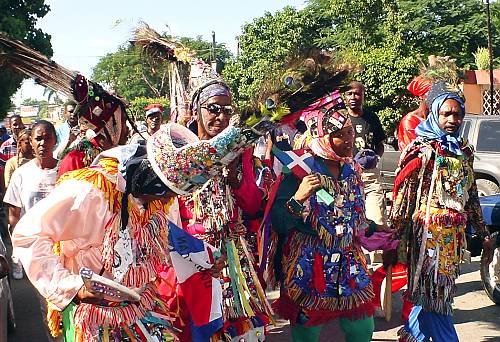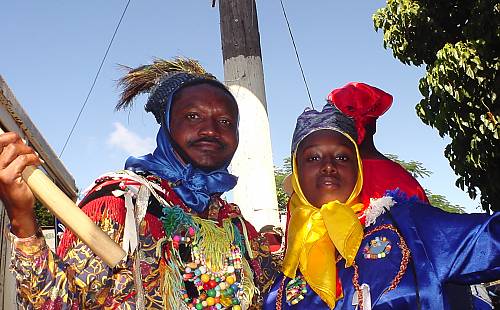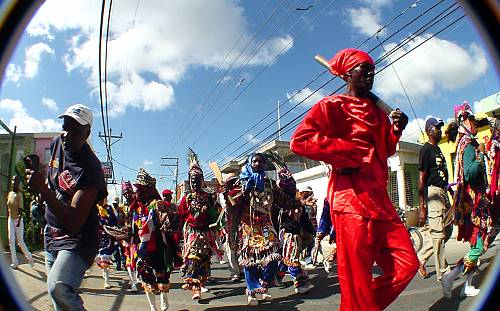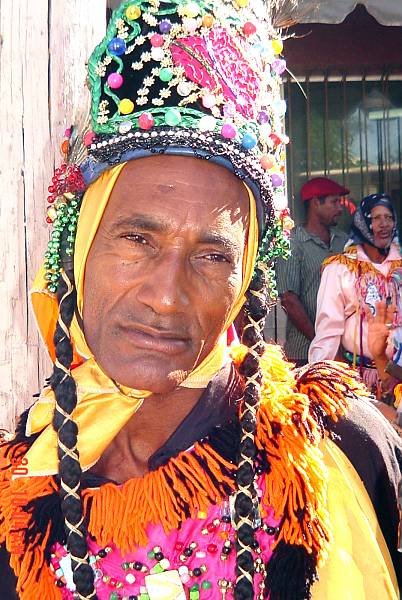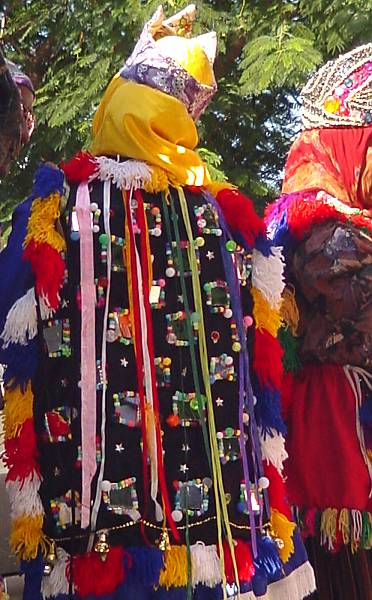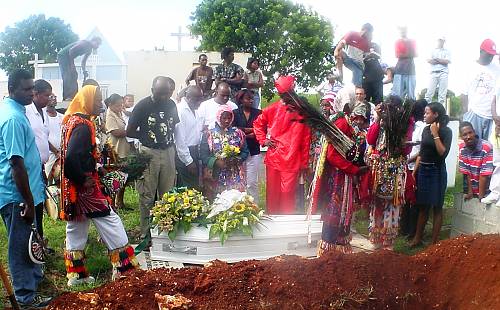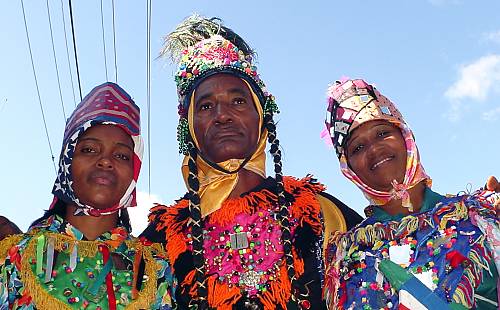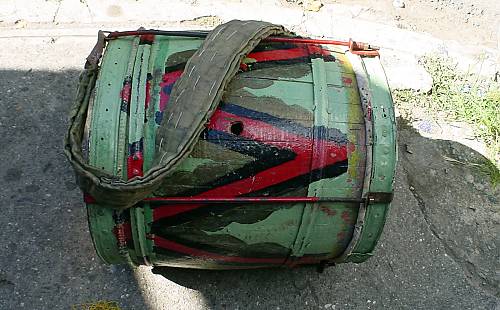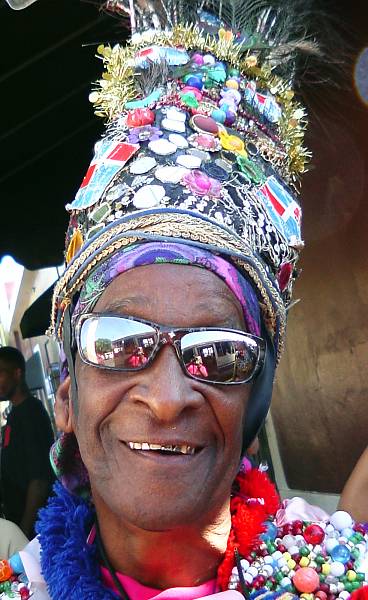Cocolo dance drama tradition
Inscribed in 2008 (3.COM) on the Representative List of the Intangible Cultural Heritage of Humanity (originally proclaimed in 2005)
The Cocolo dancing drama tradition developed among descendants of British Caribbean slaves who had come to the Dominican Republic in the mid-nineteenth century to work in the sugar fields. This linguistically and culturally distinct community set up their own churches, schools, benevolent societies and mutual assistance lodges. Their most distinctive expressions, however, were annual dancing drama performances. Originally pejorative, the term “Cocolo”, which refers to the migrants working on the British sugar plantation of the island, is now used proudly.
Various Cocolo drama troupes used to perform at Christmas, on St Peter’s day and at carnival festivities. In their performances, themes from various worlds are creatively united. Music and dance genres of African origin blend with dramatic plots, legends and figures derived from biblical and medieval European literature. These include Christmas carolling, performances of string and scratch bands, the so-called Niega business, involving masquerades and the staging of theatrical scenes such as ’David and Goliath’, ’Moko- Yombi’ and ’Cowboys and Indians’. Only one ageing troupe now remains.
This fusion of African and British cultural themes, and their adaptation to a Spanish Catholic milieu, is a salient expression of creativity. But although older members of the Cocolo community still speak Caribbean English at home, most have lost their ancient mother tongue and are monolingual in Spanish. Today, the Cocolo community is scattered in different regions of the Dominican Republic, and most have assimilated into broader Dominican society. This development has made it more difficult for the older Cocolo to transmit their knowledge to younger generations, to retain their specific institutions and to keep the dancing drama tradition alive.

